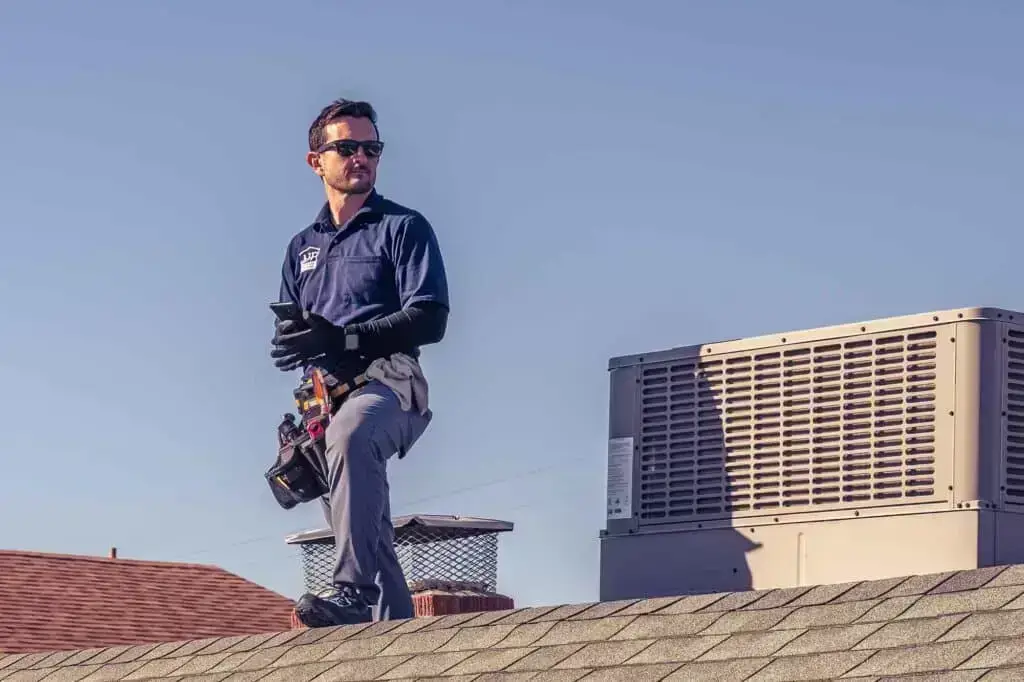No matter where they work in the United States, home inspectors all provide one critical service: ensuring homes are in sound condition before someone makes the major life decision to buy, sell, or rent those homes. However, a home inspector’s potential earnings can vary quite a bit based on several factors.
If you’re just starting as a home inspector, or are thinking about becoming one, you’re probably trying to figure out how much money you can make.
It’s an important question, as the income from any job – home inspecting or otherwise – will have a major impact on your long-term satisfaction with your profession, not to mention your financial comfort, and that of anyone else in your home relying on your income.
We’ve put together this helpful guide to home inspectors’ earning potential based on the latest information from the U.S. Bureau of Labor Statistics (BLS).
We’ll investigate a home inspector’s “typical” earnings on both an annual and hourly basis, as well as estimating potential earnings for top-performing inspectors and inspection firms. Since home inspection – like other professions serving the real estate industry – tends to be highly localized, we’ll also look at the variations between states and localities as best we can.
Let’s dive in!
Typical or median earnings for home inspectors
The BLS reports that median annual earnings for “Construction and Building Inspectors,” a professional categorization including home inspectors, was $61,640 in mid-2021.
Median earnings are simply the earnings falling exactly on the midpoint between the highest- and lowest-earning people in the profession. They’re slightly different than average earnings, typically presented as “mean” earnings statistically – median earnings more accurately reflect a typical wage because, unlike average earnings, they aren’t unfairly impacted by a bunch of super-high earners at the top end of the pay scale, or by lots of people making less than peanuts at the low end.
What do the top and bottom 10% of inspectors make?
Of course, most people won’t make the median.
If you’re just starting out, you might be among the inspectors in the lowest 10% of the wage scale. This was $38,110 for home inspectors in 2021.
High-earning home inspectors pulling in wages among the top 10% of the profession reportedly earned $100,520 in 2021.
To recap:
- Lowest-earning 10% of inspectors (2021): $38,110 annually
- Home inspector median earnings (2021): $61,640 annually
- Highest-earning 10% of inspectors (2021): $100,520 annually
On an hourly basis, this works out to…
- Lowest-earning 10% of inspectors (2021): $18.32 per hour
- Home inspector median earnings (2021): $29.63 per hour
- Highest-earning 10% of inspectors (2021): $48.33 per hour

Keep in mind that the BLS tends to calculate hourly earnings with the expectation that you’ll be working 40 hours a week to earn the listed wages. As we know, home inspectors don’t have a typical nine-to-five, and the nature of home inspection tends to require a good bit more commuting than you might have with other occupations.
On the other hand, you’ll often have much greater control over your schedule than you would in a typical office job – unless you’re the employee of a home inspection firm rather than working as an independent professional.
How do home inspector earnings compare to “similar” jobs?
Home inspectors often come from construction backgrounds, and although it doesn’t involve most of the typical “construction” job functions, home inspection is classified as part of the larger construction industry.
By this definition, inspectors are doing pretty well. The median annual wage for all construction-related jobs is just $48,210, which means a typical inspector can realistically expect to earn about 25% more as a home inspector than they might as a generalist construction worker.
There are some construction-related jobs averaging more in annual earnings than home inspectors, but all of these jobs highlighted by the BLS tend to require a bachelor’s degree, while certifications and licenses are more important to inspectors, who can become inspectors with a high school diploma. Home inspection is reportedly one of the construction industry’s highest-upside jobs for people without a college degree, as you can see from the list below:
| Occupation | Entry-Level Education |
Median Annual Pay (2021) |
| Electrical and Electronics Engineers | Bachelor’s degree | $101,780 |
| Construction Managers | Bachelor’s degree | $98,890 |
| Architects | Bachelor’s degree | $80,180 |
| Occupational Health and Safety Specialists and Technicians | Bachelor’s degree | $74,870 |
| Electrical and Electronic Engineering Technologists and Technicians | Associate’s degree | $63,640 |
| Home Inspectors | High school diploma | $61,640 |
| Surveyors | Bachelor’s degree | $61,600 |
| Property Appraisers and Assessors | Bachelor’s degree | $61,340 |
| Electricians | High school diploma | $60,040 |
| Plumbers, Pipefitters, and Steamfitters | High school diploma | $59,880 |
| Carpenters | High school diploma | $48,260 |
Source: U.S. Bureau of Labor Statistics.
What factors impact a home inspector’s earnings potential?
You might be wondering, “Why is there such a big range in inspector earnings?” Like any other profession, there will be certain factors beyond your control affecting your earning potential, and there are also a bunch of factors you can control – at least to some degree.
Where you work
A home inspector in Massachusetts will most likely earn more than one in Alabama, simply because of the differing costs of living, property values, and median household incomes in each state. BLS has all the data, so let’s examine the five states with the highest – and the five with the lowest – average inspector earnings:
| State | Median Inspector Earnings |
Difference vs. U.S. Median |
| California | $93,600 | 52% more |
| Connecticut | $83,690 | 36% more |
| Nevada | $82,130 | 33% more |
| Washington | $81,970 | 33% more |
| Alaska | $81,860 | 33% more |
| US National Average | $61,640 per year | 0% |
| Alabama | $52,870 | 14% less |
| Oklahoma | $51,080 | 17% less |
| Tennessee | $50,340 | 18% less |
| Mississippi | $50,090 | 19% less |
| Arkansas | $49,030 | 21% less |
Source: U.S. Bureau of Labor Statistics.
Data does not include Washington, DC, Guam, or Puerto Rico.
The flip side to these numbers is the cost of living, of course – it’s generally much more expensive to live most anywhere in California than it is to live most anywhere in Arkansas.
How much experience (and certifications) you have
A veteran inspector with thousands of jobs under their belts will undoubtedly have more pricing power – and most likely, client and agent loyalty – than a brand-new inspector who’s just hung out a shingle for the LLC they formed three days ago.
Over time, doing good work in one geographic area should build up a base of goodwill and good reviews, which ought to give your inspection business the good reputation it needs to charge higher rates.
Getting certified to conduct both home inspections generally and ancillary inspection services more specifically can also bolster your pricing power by allowing you to confidently offer more specialized inspection services to more clients, which can be one of the best ways to increase your average inspection fee without necessarily spending any more time conducting each inspection.
And while we’re on that topic…
Any ancillary services you offer
Mold, radon, sewer scopes. Termites, pools, high-rise condos. There are tons of different types of dwellings, with many different possible problems. Your earning power as a home inspector will, in no small part, fluctuate based on your ability to convince clients they need to “add-on” specialized services you don’t perform during a standard inspection.
Your network, referral partners, and marketing efforts
Ever hear the phrase “your network is your net worth”? This is undoubtedly true for relationship-based work, such as home inspection. If you’re comfortable networking locally, you’ll most likely end up with at least a few reliable referral partners in the local real estate community, and successful real estate agents can be great sources of ongoing referrals for years, if you nurture the relationships well.

But you don’t have to limit yourself to attending local B2B networking events or dropping into nearby real estate offices. You can also build a steady pipeline of leads and prospective customers through marketing your inspection business. Some inspectors go with physical mailers or drop-off flyers. Others focus on building great websites that can easily be found by prospective local clients hunting for a “home inspector near me.”
Whatever you do to promote your inspection business, keep doing it! It’s hard to find a business that doesn’t make any effort to BE found, and you’ve got to assume the best inspectors in your local area are also working their marketing channels to generate more leads. Slacking off on your marketing efforts will just allow these competitors to get more mindshare among local homebuyers.
Common financial benefits and challenges for home inspectors
Many home inspectors are independent contractors and/or run small businesses, so the financial scenarios they face can be a bit different from those encountered in most 9-to-5 jobs. Here are a few benefits and pitfalls, assuming you (like most inspectors) would prefer to do things yourself…
Financial and career benefits for inspectors
Set your own hours! As an independent contractor or business owner, you have full control over your schedule and can decide when (and where) you want to work, which is fantastic for balancing family, hobbies, or other passions.
How much you charge is also up to you – within reason. Experience, reputation, and specializations can all affect the prices you charge for your services. However, it’s important to understand what other inspectors are charging nearby, as you can’t simply jack up your rates to be higher than anyone else’s while still expecting a steady stream of business.
Finding that sweet spot for pricing, where you’re competitive with other firms, while also earning enough to make each job worthwhile, will be one of the most important things you can figure out as a new inspector.
If you establish yourself as a reliable inspector and find clients and agents knocking down your door to get inspections, you may even consider expanding your business by hiring other inspectors. The nation’s top inspection firms employ teams of qualified inspectors and can earn millions in revenue every year, so if you’ve got a keen sense for business, you may reach financial heights that simply aren’t possible as an employee.
Financial and career challenges for inspectors
Unlike most full-time salaried jobs, being an independent contractor tends to prevent you from accessing affordable health insurance or retirement plans.
You can secure health insurance through government marketplaces or private providers, and independent contractors have certain advantages in funding retirement accounts that aren’t available to salaried employees. However, these benefits tend to be tied to your income, so if you start earning a lot, it may become challenging to find affordable health insurance.
Your income, especially at the start, is also likely to be inconsistent from month to month, or even from week to week, as you may pick up a few clients one day but wait days for the next client to book you. If you plan to make inspections your main source of income, you should establish enough of a cash cushion to withstand occasional stretches of low or no earnings.
The biggest drawback to being an independent proprietor as a home inspector is all the business-related busywork you’ll need to deal with, and all the legal and tax-related hoops you’ll need to jump through to ensure compliance with any local, state, and federal laws governing your business.
Paying taxes is different when you have your own business, and you may want to retain an accountant skilled at finding as many business deductions as possible.
You’ll also be on the hook for both day-to-day and periodic expenses, whether that means paying for the cost of continuing education, buying new tools, fixing your car so you can drive to the next job, or running a local marketing campaign to drum up new business. Many of these expenses are tax-deductible, but it’s still often worthwhile to get professional advice before filing a business tax return.
Of course, if you decide to work for an established inspection firm, you’re much more likely to have stable earnings, while having better access to benefits like health insurance or a 401(k). You could also choose to inspect homes as a “side hustle” while retaining your primary job, which would also address the inconsistencies of full-time independent contracting while providing solid benefits.
Wrapping it all up
Being a home inspector is often about far more than checking crawlspaces and electrical connections. It’s a complex profession with opportunities, challenges, and financial nuances that can make it a fulfilling career choice – or a trap full of pitfalls for those who aren’t prepared.
But you don’t have to do it all alone. ISN offers invaluable tools to optimize your financial performance, with detailed analytics to show you where your money comes from, where it goes, and what it’s really doing for your business from day to day. It’s not just about earning; it’s about making every cent count. So why leave it to chance?
Get started with ISN and see how you can make your inspection business thrive, not just survive. Click on over to the ISN features page to explore all the ways we can help you grow your inspection business today. Because being a home inspector is about more than inspecting houses; it’s about building a successful future for yourself, and a better life for your loved ones.

